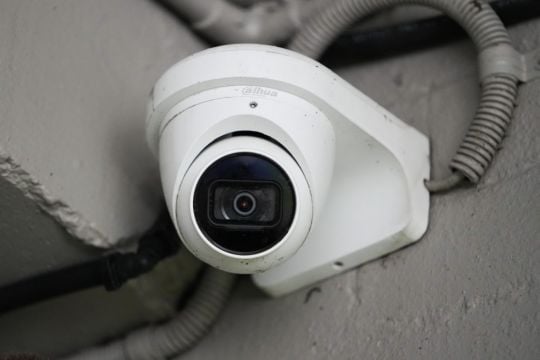Australia’s defence department will remove surveillance cameras made by Chinese Communist Party-linked companies from its buildings, the government said.
It comes after the US and Britain made similar moves.
The Australian newspaper said on Thursday at least 913 cameras, intercoms, electronic entry systems and video recorders developed and manufactured by Chinese firms Hikvision and Dahua are in Australian government and agency offices, including the defence department and department of foreign affairs and trade.
Hikvision and Dahua are partly owned by China’s Communist Party-ruled government.
The US government said in November it was banning telecommunications and video surveillance equipment from several prominent Chinese brands, including Hikvision and Dahua, in an effort to protect the nation’s communications network.
Security cameras made by Hikvision were also banned from British government buildings in November.
Defence minister Richard Marles said his department is assessing its surveillance technology.
“Where those particular cameras are found, they’re going to be removed,” he told the Australian Broadcasting Corp (ABC).
“There is an issue here and we’re going to deal with it.”
Asked about Australia’s decision, Chinese foreign ministry spokeswoman Mao Ning criticised what she called “wrongful practices that overstretch the concept of national security and abuse state power to suppress and discriminate against Chinese enterprises”.
Without mentioning Australia by name, Ms Mao said the Chinese government has “always encouraged Chinese enterprises to carry out foreign investment and co-operation in accordance with market principles and international rules and on the basis of compliance with local laws”.
“We hope Australia will provide a fair and non-discriminatory environment for the normal operation of Chinese enterprises and do more things that are conducive to mutual trust and cooperation between the two sides,” she told reporters at a daily briefing.
An audit revealed Hikvision and Dahua cameras and security equipment were found in almost every department except the agriculture department and the department of prime minister and cabinet.
The Australian War Memorial and National Disability Insurance Agency said they would remove the Chinese cameras found at their sites, the ABC reported.
Opposition cybersecurity spokesman James Paterson said he prompted the audit by asking questions over six months of each federal agency after the home affairs department was unable to say how many of the cameras, access control systems and intercoms were installed in government buildings.
“We urgently need a plan from the … government to rip every one of these devices out of Australian government departments and agencies,” Mr Paterson said.
Both companies are subject to China’s national intelligence law, which requires them to co-operate with Chinese intelligence agencies, he said.
“We would have no way of knowing if the sensitive information, images and audio collected by these devices are secretly being sent back to China against the interests of Australian citizens,” Mr Paterson added.







